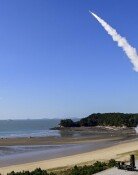The President’s Office to reopen discussions on vetoed Nursing Act
The President’s Office to reopen discussions on vetoed Nursing Act
Posted March. 09, 2024 07:45,
Updated March. 09, 2024 07:45
The movement to re-promote the 'Nursing Act' is gaining momentum as nurses have been earnestly deployed to fill the major work gap left by the medical residents' strike since the 8th. The Nursing Act is a law designed to independently codify the status and scope of work for nurses, currently stipulated in the Medical Service Act, along with other medical personnel, including doctors. The Korean Nurses Association is urging the National Assembly to enact this law. Despite the President's Office vetoing the bill last year, there is now room for discussion, even though it maintains a cautious stance.
On this day, the Korean Nurses Association (KNA) pressed the National Assembly and the government to enact the law during a press conference held at the National Assembly. "The Nursing Act is a crucial piece of legislation supporting the government's medical reform initiatives aimed at strengthening local medical care and establishing a safety net for medical accidents," the association said.
"The decision on whether to legislate the matter of PA nurses may fall under the Medical Service Act, and whether it will be addressed in the Nursing Act has not been confirmed yet,” a senior official from the Presidential Office said in a phone call with The Dong-A Ilbo. "Last year, when the veto on the Nursing Act was exercised, there was no conflict situation like the present one," another official from the President's Office remarked. "If the contentious issues can be resolved, we may reopen discussions, leaving room for potential legislation."
Starting today, hospitals nationwide have initiated the implementation of guidelines for a pilot project related to nursing work, enabling nurses to undertake certain responsibilities previously handled by doctors. At Pusan National University Hospital, Physician Assistant (PA) nurses have been designated to administer treatments such as dressing wounds and measuring electrocardiograms, following the outlined guidelines. "We are devising a plan to ensure that procedures demanding additional expertise can be executed after appropriate training," an official from Pusan National University Hospital remarked. Similarly, Korea University Anam Hospital has expanded the scope of nurses' duties to encompass tasks like gastric tube insertion and stitch removal.
In certain instances, Physician Assistant (PA) nurses have voiced grievances, citing concerns over an overwhelming workload and potential legal ramifications. There is apprehension that doctors could face lawsuits from patients, guardians, or bereaved families due to medical treatments administered by PA nurses on behalf of physicians. It is emphasized that even if criminal charges are not brought forth, given that the actions align with government guidelines, the involved parties may not be immune to civil liability claims for damages.
Doctors' groups have strongly opposed the government's recent measures. "(With this measure, nurses’ medical practice) will not be punished as unlicensed medical practice, but if there is a negative result, they will not be able to avoid civil and criminal punishment," said Joo Su-ho, the media relations commissioner of the Emergency Response Committee within the Korean Medical Association. “Potential legal consequences that may arise in the event of unfavorable outcomes.”
이문수 기자 doorwater@donga.com







